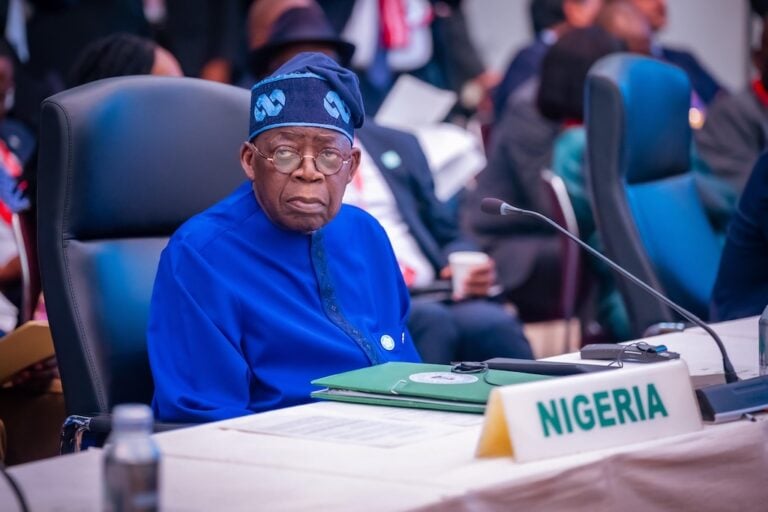President Bola Ahmed Tinubu has cut down the list of individuals granted presidential pardon and clemency following nationwide outrage over the inclusion of convicts found guilty of serious crimes such as murder, kidnapping, and drug trafficking.
In a statement issued on Wednesday, October 29, 2025, by his Special Adviser on Information and Strategy, Bayo Onanuga, the President said he invoked his constitutional powers to review and approve a new list of beneficiaries.

Tinubu had earlier granted pardon to 175 people — a move that drew heavy criticism from Nigerians and civil society groups. Following consultations with the Council of State and a review of public reactions, the number of beneficiaries was reduced to 120.
According to Onanuga, the review was conducted in line with Section 175 (1) and (2) of the 1999 Constitution. He explained that persons convicted of major offences like kidnapping, drug trafficking, human trafficking, and illegal possession of firearms were removed, while others had their sentences reduced instead of receiving a full pardon.

Out of the 120 remaining beneficiaries, 86 received reduced prison terms. Among them is Maryam Sanda, daughter-in-law of a former PDP chairman, who had her death sentence for the 2020 killing of her husband, Bilyamin Bello, commuted to 12 years imprisonment. Her reduced sentence was based on good behaviour and compassion for her children.
Another beneficiary, Chukwukelu Sunday Calistus, saw his life sentence for drug offences reduced to 20 years after serving 11 years. Others, including Yusuf Owolabi and Ifeanyi Eze, convicted of manslaughter, had their life sentences reduced to 15 years.

The revised list also includes offenders found guilty of lesser crimes such as unlawful mining, forgery, fraud, and possession of cannabis. The government said those who benefited showed remorse and signs of reform while in custody.

In addition to the reduced terms, 15 people were granted clemency, while another 15 — including Ken Saro-Wiwa and Herbert Macaulay — received posthumous pardons. Four death sentences were also commuted to life imprisonment.
The full list of those granted pardon, clemency, and sentence reductions includes names such as Hon. Farouk Lawan, Mamman Jiya Vatsa, Barinem Kiobel, Baribor Bera, and John Kpuine.
Reacting to the development, former Vice President Atiku Abubakar criticized the review, describing it as “a sign of shame, not leadership.” Through his aide, Phrank Shaibu, Atiku said the government acted only after public outcry, accusing it of “trial-and-error governance.”

He challenged Tinubu to publish the original list with details of the beneficiaries’ offences, arguing that a presidential pardon should be a matter of justice and compassion, not public relations.
In response, the All Progressives Congress (APC) defended the President, saying the review demonstrated leadership and accountability. Lagos APC spokesperson Seye Oladejo said Atiku’s remarks reflected “bitterness and frustration,” stressing that Tinubu’s move was based on due process and national interest.
Oladejo added that the decision to correct the initial list “shows courage and respect for public opinion,” urging Nigerians to disregard “political distractions from those desperate for relevance.”
Meanwhile, Tinubu has ordered a reform of the clemency process. The Presidential Advisory Committee on Prerogative of Mercy will now operate under the Federal Ministry of Justice instead of the Ministry of Special Duties.
Attorney-General of the Federation Lateef Fagbemi (SAN) said new guidelines will be introduced to ensure that future pardon exercises are transparent, fair, and aligned with public expectations.
He explained that the review was aimed at balancing justice with compassion, ensuring only deserving individuals benefit. “The goal is to maintain a justice system that punishes but also reforms,” Fagbemi said. “The President remains committed to upholding human dignity while safeguarding national security.”




